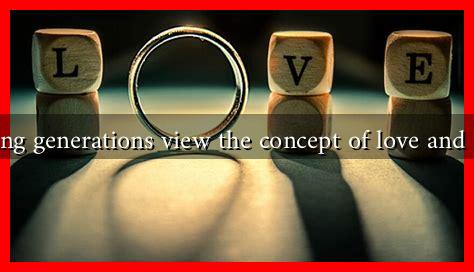-
Table of Contents
How Do Young Generations View the Concept of Love and Relationships?
In an era defined by rapid technological advancements and shifting cultural norms, the concept of love and relationships has evolved significantly, particularly among younger generations. Millennials and Generation Z, in particular, have unique perspectives shaped by their experiences, social media influences, and changing societal expectations. This article explores how these young generations view love and relationships, highlighting key trends, challenges, and insights.
The Impact of Technology on Love
Technology has transformed the way young people connect, communicate, and form relationships. Dating apps like Tinder, Bumble, and Hinge have revolutionized the dating landscape, making it easier for individuals to meet potential partners. According to a study by the Pew Research Center, about 30% of U.S. adults aged 18-29 have used a dating app, reflecting a significant shift in how relationships are initiated.
- Accessibility: Dating apps provide a vast pool of potential partners, allowing users to filter based on preferences such as interests, values, and location.
- Instant Communication: Social media platforms enable constant communication, fostering connections that can develop quickly.
- Changing Norms: Online interactions have normalized casual dating and non-traditional relationship structures, such as polyamory and open relationships.
Redefining Commitment and Monogamy
Young generations are increasingly questioning traditional notions of commitment and monogamy. Many view relationships through a more flexible lens, prioritizing personal growth and emotional fulfillment over societal expectations.
- Fluid Relationships: Many young people prefer to explore different types of relationships before settling down, often viewing dating as a journey rather than a destination.
- Emphasis on Communication: Open and honest communication is valued, with many young individuals prioritizing discussions about boundaries and expectations.
- Redefining Love: Love is often seen as a spectrum, with many young people embracing diverse forms of love, including platonic and familial connections.
Challenges in Modern Relationships
Despite the opportunities presented by technology and changing norms, young generations face unique challenges in their romantic lives. Issues such as mental health, societal pressures, and the impact of social media can complicate relationships.
- Mental Health Awareness: Many young people are more open about mental health issues, which can affect their relationships. A survey by the American Psychological Association found that 61% of young adults reported feeling anxious about dating.
- Social Media Pressure: The curated nature of social media can lead to unrealistic expectations about relationships, causing feelings of inadequacy and comparison.
- Fear of Commitment: The prevalence of casual dating can create a fear of commitment, with many young people hesitant to enter serious relationships.
Case Studies and Real-Life Examples
Real-life examples illustrate how young generations navigate love and relationships. For instance, a study conducted by the University of California, Los Angeles (UCLA) found that college students prioritize emotional connection and compatibility over physical attraction. This shift indicates a deeper understanding of what constitutes a fulfilling relationship.
Additionally, the rise of social media influencers who openly discuss their relationship dynamics has provided young people with relatable content. For example, couples like Jenna Marbles and Julien Solomita have shared their journey of love, emphasizing the importance of communication and mutual respect.
Conclusion: A New Era of Love
In conclusion, young generations are redefining love and relationships in ways that reflect their values, experiences, and the influence of technology. While they face unique challenges, their emphasis on communication, emotional fulfillment, and diverse relationship structures marks a significant shift from traditional norms. As society continues to evolve, understanding these perspectives will be crucial for fostering healthy and meaningful connections among young people.
For further insights into the evolving nature of love and relationships, you can explore resources from the Pew Research Center and the American Psychological Association.

